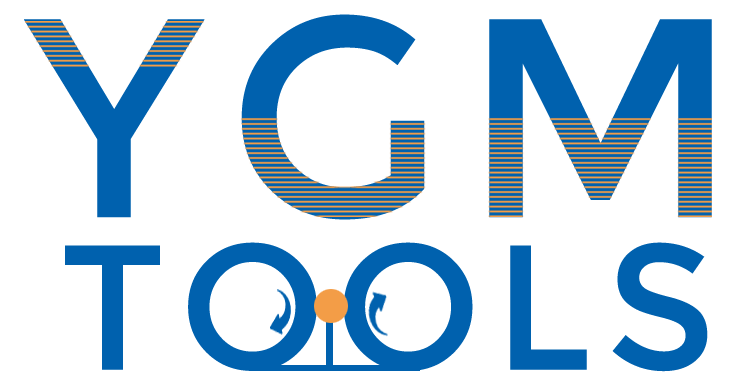
-
 Afrikaans
Afrikaans -
 Albanian
Albanian -
 Amharic
Amharic -
 Arabic
Arabic -
 Armenian
Armenian -
 Azerbaijani
Azerbaijani -
 Basque
Basque -
 Belarusian
Belarusian -
 Bengali
Bengali -
 Bosnian
Bosnian -
 Bulgarian
Bulgarian -
 Catalan
Catalan -
 Cebuano
Cebuano -
 Corsican
Corsican -
 Croatian
Croatian -
 Czech
Czech -
 Danish
Danish -
 Dutch
Dutch -
 English
English -
 Esperanto
Esperanto -
 Estonian
Estonian -
 Finnish
Finnish -
 French
French -
 Frisian
Frisian -
 Galician
Galician -
 Georgian
Georgian -
 German
German -
 Greek
Greek -
 Gujarati
Gujarati -
 Haitian Creole
Haitian Creole -
 hausa
hausa -
 hawaiian
hawaiian -
 Hebrew
Hebrew -
 Hindi
Hindi -
 Miao
Miao -
 Hungarian
Hungarian -
 Icelandic
Icelandic -
 igbo
igbo -
 Indonesian
Indonesian -
 irish
irish -
 Italian
Italian -
 Japanese
Japanese -
 Javanese
Javanese -
 Kannada
Kannada -
 kazakh
kazakh -
 Khmer
Khmer -
 Rwandese
Rwandese -
 Korean
Korean -
 Kurdish
Kurdish -
 Kyrgyz
Kyrgyz -
 Lao
Lao -
 Latin
Latin -
 Latvian
Latvian -
 Lithuanian
Lithuanian -
 Luxembourgish
Luxembourgish -
 Macedonian
Macedonian -
 Malgashi
Malgashi -
 Malay
Malay -
 Malayalam
Malayalam -
 Maltese
Maltese -
 Maori
Maori -
 Marathi
Marathi -
 Mongolian
Mongolian -
 Myanmar
Myanmar -
 Nepali
Nepali -
 Norwegian
Norwegian -
 Norwegian
Norwegian -
 Occitan
Occitan -
 Pashto
Pashto -
 Persian
Persian -
 Polish
Polish -
 Portuguese
Portuguese -
 Punjabi
Punjabi -
 Romanian
Romanian -
 Russian
Russian -
 Samoan
Samoan -
 Scottish Gaelic
Scottish Gaelic -
 Serbian
Serbian -
 Sesotho
Sesotho -
 Shona
Shona -
 Sindhi
Sindhi -
 Sinhala
Sinhala -
 Slovak
Slovak -
 Slovenian
Slovenian -
 Somali
Somali -
 Spanish
Spanish -
 Sundanese
Sundanese -
 Swahili
Swahili -
 Swedish
Swedish -
 Tagalog
Tagalog -
 Tajik
Tajik -
 Tamil
Tamil -
 Tatar
Tatar -
 Telugu
Telugu -
 Thai
Thai -
 Turkish
Turkish -
 Turkmen
Turkmen -
 Ukrainian
Ukrainian -
 Urdu
Urdu -
 Uighur
Uighur -
 Uzbek
Uzbek -
 Vietnamese
Vietnamese -
 Welsh
Welsh -
 Bantu
Bantu -
 Yiddish
Yiddish -
 Yoruba
Yoruba -
 Zulu
Zulu
Types and Pricing of Thread Rolling Machines for Various Applications
Understanding Types of Thread Rolling Machines and Their Price Lists
Thread rolling machines play a crucial role in the manufacturing sector, particularly in producing threaded fasteners and components with superior strength and durability. Unlike traditional cutting methods, thread rolling is a cold forming process that enhances the mechanical properties of the material, making it an attractive option for various industries. This article delves into the different types of thread rolling machines and provides insights into their pricing structures.
Types of Thread Rolling Machines
1. Flat Die Thread Rolling Machines Flat die machines are among the most common types of thread rolling equipment. They use flat dies to form threads on cylindrical workpieces and are known for their high productivity and versatility. These machines can handle various sizes and types of threads, making them ideal for small to medium-scale production. Prices for flat die machines typically range from $10,000 to $30,000, depending on the machine’s size and capabilities.
2. Planetary Thread Rolling Machines Planetary machines utilize multiple rolling dies to create threads, allowing for higher production rates and more uniform threading. They are particularly suitable for complex thread patterns and larger production volumes. The price for planetary thread rolling machines can vary significantly, ranging from $25,000 to above $100,000, depending on features such as automation, precision, and manufacturing capacity.
3. Knurling Machines Though not exclusively thread rolling machines, knurling machines often include a thread rolling option. These machines create textured or patterned surfaces, which are essential for certain applications. A simple knurling machine can cost between $5,000 and $20,000, whereas advanced models with additional capabilities may exceed $30,000.
types of thread rolling machine pricelist

4. Three-Station Thread Rolling Machines These machines are designed to accommodate multiple workpieces simultaneously, increasing efficiency for high-volume production environments. They typically feature automated systems for loading, rolling, and unloading parts. Prices for three-station machines can start around $50,000 and extend up to $150,000, depending on the level of automation and technology employed.
5. Customized Thread Rolling Machines For manufacturers with specialized needs, customized thread rolling machines are an option. These machines are tailored to specific materials, sizes, and thread forms, which can lead to increased production efficiency. Custom solutions can be significantly more expensive, often starting at $80,000 and going upwards of $200,000.
Additional Cost Considerations
When evaluating the price of thread rolling machines, it’s crucial to remember that the initial purchase cost is not the only expense involved. Potential buyers should also consider operational costs such as maintenance, tooling, and energy consumption. Additionally, the purchase of supplementary equipment, such as conveyors and quality control systems, may also factor into the overall investment.
Conclusion
Thread rolling machines are essential tools in modern manufacturing, and their diversity allows businesses to choose equipment that best fits their production needs. Understanding the various types and their respective price points can help manufacturers make informed purchasing decisions. As the industry continues to evolve, advancements in technology will likely influence both the capabilities and costs of thread rolling machines, making it imperative for businesses to stay abreast of market trends.
